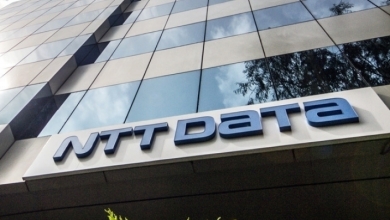
Swimlane Chief Operating Office, Jim Hansen (pictured) has a lot of sympathy for MSPs involved in securing their clients' operations: “They're working a lot and they're not necessarily doing what they really wanted to do. So, we're in the space of automating things they shouldn't spend their time on - making them more efficient. That's the whole point. It's efficiency and effectiveness. We're talking about trying to automate using machine learning, using artificial intelligence, using more effective humans,” he says.
Speaking at the Progress Technology Services partner conference last week he argued that Security Operation Centres (SOCs) are overworked and operators are frustrated by wading through piles of junk only to then spend their time cutting and pasting what is relevant. “So our whole goal is take the junk off their plate - getting analysts doing what you want them to do, not eliminate them, but allow them to spend their time looking for things that are more advanced, more sophisticated, more interesting, and lets automate way all of the garbage, all the junk. The reality is you'll never be able to hire enough SOC analysts to keep up with the demand you've got if the scale of threat continues to advance.”
According to Hansen, already “one third of our customer base is managed services and security,” which he thinks is because this suits their licensing model. He also highlights the emphasis they put on integrating with other products, ideally two-way and at an API level: “the reason is no customer security stack looks exactly like the others.”
Hansen says that another key advantage of the Swimlane solution is its scalability – “We haven't had a customer yet that's scaled their license down,” and so far, this year, he says they are running at a hundred percent customer retention rate. He also highlights that implementing the Swimlane solution generates strong service revenues for an MSP and the benefits of the annual license subscription model with comfortable margins available via its European distribution partner, Progress Technology Services.
“The last piece is fundamentally managed services. This is a key play for an MSSP - the ability to service more customers per analyst makes the numbers fly really, really, cleanly. Simple, straightforward, basic math. Oh, and you can demonstrate to whatever compliance standard they set up for you that you must do this every single time with fully audited results.”
The opportunities and challenges facing MSPs will be addressed at the next Managed Services and Hosting Summit which will be staged in Manchester later this month – www.mshsummit.com/north . The channel opportunities specifically from security will be the focus at Channel-Sec 2020 next March – www.channel-sec.com


